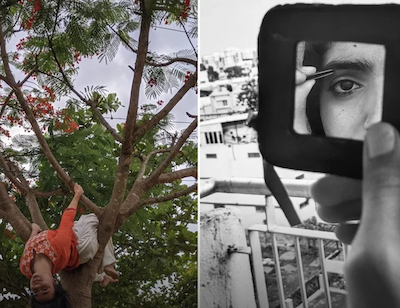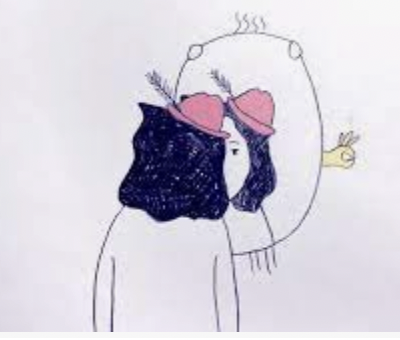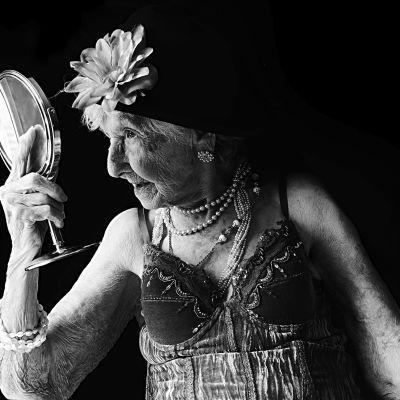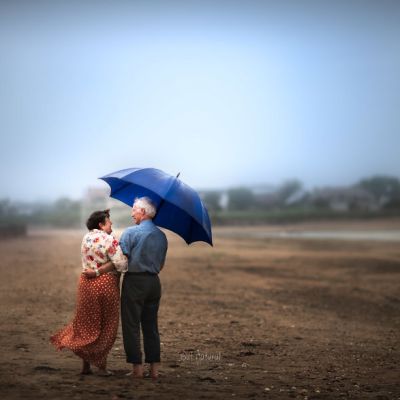Activism
But self-care is not a clean and happy procedure, it is not definitively achievable when systematically explored. To understand the scope of self-care we need to see the ‘dark side’ of the landscape, and destroy the versions of self-care that denounce our plurality. In this fight, the only outcome can be a recognition of experiences beyond the wellness narrative structured around the neoliberal agenda. This article is an attempt at foregrounding some aspects of self-care that decentralise the prevalent commodification of it.
Ageing vaginas in ageing female bodies are joked about. But a vagina shouldn’t have the task of pleasing anybody but itself first. To begin with, we’ll have to love and respect our vaginas in order to pleasure them. Love them just as they are. If they feel a little dry, don’t despair. Use a lubricant or a little coconut oil. If my labia are unshapely, they’re still my labia and respond very nicely to gentleness and tenderness. If I don’t love and respect my ageing body, in need of gentle, loving, patient care, then who will, for God’s sake?
My journal has many entries that are speculative and fantastic. Writing about the mundane leads me to question the way the world operates and from there I frog-leap into a world of ideas where I imagine a radically different way of being. In my journal, I imagine a politics of care, community, and compassion. I become grand, valuable, and unstoppable, even in a world where I am sometimes made to feel small.
Pandemics have a profound psychological impact. They are known to disrupt one’s sense of safety, security, certainty, control, concordance, and…
Inspired to collect photographs of women spending time by themselves and for themselves after a conversation with her mother’s friend, Surabhi Yadav began the project, Women at Leisure.
This thought-provoking, luminously illustrated The School of Life video reminds us of self-compassion being essential to building our own selves up, and being a safe space where we can extend the same love and imagination to our vulnerabilities, insecurities, fears, and doubts as we do to our friends.
Ageing is often associated with a loss, a lack of ability and strength. When combined with sexuality, in the popular imagination, fed especially by market forces, youth is to be lauded and ageing regarded as the impending horror that must be evaded for as long as possible.
The conversion of the noun (adult) into the verb form (adulting) implies that ‘adulting’ is more performance than inevitability. Which is to say, there is no intrinsic understanding of ‘adulting’; it is something that can be learnt over time.
As Clément subverts ageist norms around beauty with her camera-work, the women and men (ranging in age from 70 to 102 years) who reveal themselves in this project give us a glimpse into their inner world and the rich and vibrant ways in which they experience sensuality.
Capturing moments of tenderness between these couples as they shine with affection, comfort, and laughter, Sujata’s photo-series reminds us that we don’t simply fall in love, but with time, nurture and strengthen intimacy.
The issue with the ‘Aunty’ body arises from a deeply misogynistic and dehumanising understanding of women. In this imagination the woman, whom the world now addresses as ‘Aunty’, has basically served her purpose of marriage and child bearing, and is hence rendered useless.
It is true though that ageing has brought home realities about my body that I ignored when I was younger. It has made me mindful of what I value, and what I choose to let go of, without too much of thought or unnecessary angst.
The most satisfying spiritual and sexual experiences I’ve had were not in my twenties, thirties or even forties. They have been in my 50’s. The most insightful spiritual insights, and the most orgasmic orgasms have both arrived in middle age.
Age is not just a number, like it is often said to be. It is a lot combined together. It is about grace, it is about exposure, it is about knowledge, it is about the ability to fight back. And yet, in endless other ways, age IS just a number.
In this issue of In Plainspeak our contributors reflect on and reveal the myriad facets of being single – is it a choice? A condition? A state of being? Lonely? Joyful? Not one or the other, but a glorious mix?















